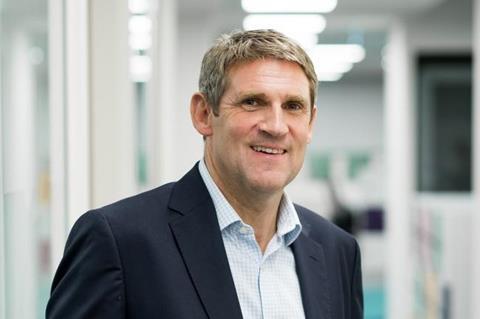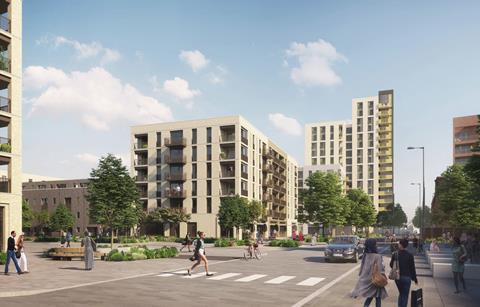John Martin says he cannot give guidance on profit and sales until he has reviewed individual sites
Countryside’s interim chief executive has pointed the finger at planning delays and supply chain disruption following a major drop in sales, which yesterday prompted the resignation of boss Iain McPherson.
John Martin said he was “disappointed” by the first quarter performance of the business, and that he could not give forward guidance on its financials until he had undertaken a site-by-site review of the firm’s operations.

The Countryside chair and former Wolseley chief executive, who stepped into the role of acting chief executive yesterday upon McPherson’s departure, said the executive team at the business was still confident of hitting expected numbers for the coming year, but that he could not be sure of this until he had undertaken review of its sites, expected to take eight to 10 weeks.
McPherson left “by mutual consent” yesterday after Countryside revealed that its adjusted operating profit had collapsed by 55% in the first quarter of its financial year, to 31 December, with completions down more than a third.
Shares in £1.5bn turnover Countryside fell by more than a quarter at times yesterday following the announcement, ultimately closing down 21%.
The poor performance comes just months after the firm instituted a major strategic about turn, focusing all its investments on growing its partnerships housing business, while seeking to sell its traditional housebuilding operations.
Martin said the drop in performance had occurred despite the market remaining “OK”, and that he was still determining exactly what had caused it, but that the business remained committed to focusing 100% of its resources on its partnerships housing business.
See also: Genius or folly? Why Countryside’s decision to get out of housebuilding is causing a stir
However, he said: “I think the one area that we are probably slightly more affected than other businesses is planning. And the reason for that is because of the growth trajectory. We have been finding sites for development, [so] will proportionately have more sites in planning given the size of our business than most companies, because we are in a growth phase. So there certainly have been some planning delays and delays on getting on site.”
Martin’s comments came amid increasing concern over a deepening planning performance crisis at English local authorities, with recent official figures showing the proportion of applications determined on time had fallen to its lowest level for five years.
However, Martin said he was not attempting to use planning to excuse the firm’s numbers. “I wouldn’t want to overplay those [planning issues] until we have got in and really got to the bottom [of it]. Because at the end of the day, if it’s planning, we should have built that into our plans. We should not be overly optimistic in our planning.”
He added that he would “bitterly regret” if the firm’s longer term financial targets had to be reduced in light of the poor trading. In November Countryside set out a plan to increase the return on capital employed by the company to above 40%, after which it would grow revenues by 10-15% a year.
Martin said that while supply chain issues, including the collapse of a key groundworks subcontractor, had impacted on the business, “I don’t think that in isolation is the reason for us being behind” on its performance.
He said there were “a number of sites on which there are a number of issues”, including two where a groundworks firms had gone bust, but that overall the issue was “less than you would expect given the sort of newspaper headlines [on supply chain problems]”.
See also: Is working from home driving a planning system crisis?
“There are there are a number of areas where we’ve had specific problems, but I do think they are specific rather than sort of incredibly broadly based”.
Martin said that the decision for McPherson to resign was taken at a board meeting on Wednesday after an update on the performance of the business. He said he will now review with the executive team each development to make sure they are either on track or have a plan to put them on track.
“We’re not guiding to any other numbers at the moment, that would be premature,” he said. ”We will update you when we have a better view when we have completed that review.”

He added that “the [executive] team remain positive about delivering [expected financial performance] this financial year. Of course, in my new interim role […] I want to go and make sure that I poke and prod and all the things that you would expect in order to confirm that for myself first.”
Martin said he was also looking to work out whether Countryside had been too ambitious in what it could achieve.
“Have we been too ambitious in setting the pace with which we want to grow, the pace of which we want to invest in, for example, the new region, at the same time as doing the investment in modular manufacturing, at the same time as dealing with some of the historical problems? Possibly,” he said.
Cenkos analyst Kevin Cammack said it still was “not clear why the numbers have reversed” but that there were no issues with the market or demand.
“Iain McPherson is paying the price for a period of poor trading and perhaps, having seen the group through the defining strategy change, it was felt a new leadership would make the execution of that strategy easier,” Cammack said.










No comments yet